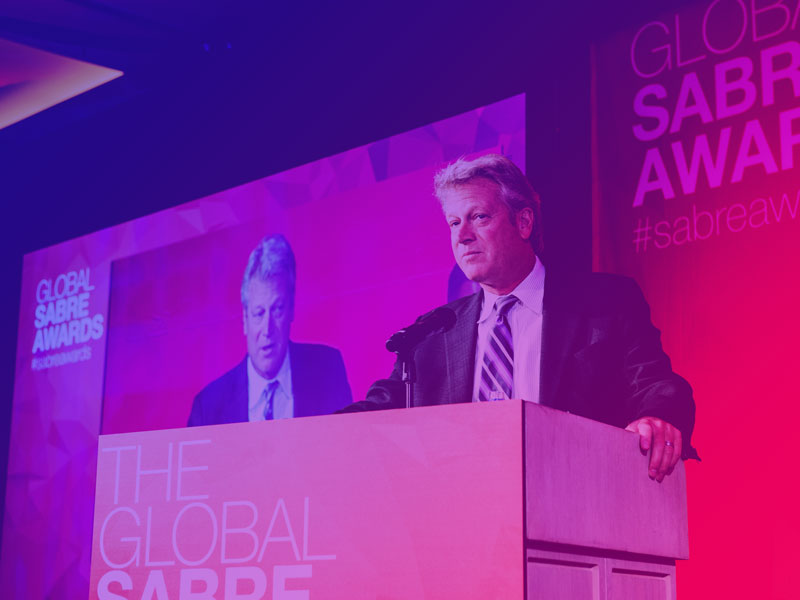Andy Polansky 06 Jan 2017 // 2:02PM GMT

Gone are the days when as counselors we could focus on helping our client partners navigate a relatively steady course, within a fairly predictable set of known business challenges. It’s a strikingly different world today. On top of jarring geopolitical issues and a flood of fake news, marketers face a dizzying pace of change. A single tweet can disfigure a reputation decades in the making, and the toolkit needed to drive engagement and desired business outcomes widens with each new social platform launch or algorithm change.
But fundamentally, we’re in the intellectual capital business – offering creative ideas for brand-building as well as strategic advice that solves problems. On any given day, clients and other stakeholders rely on our expertise to educate, advocate, promote, and assess issues and opportunities. Those core functions are arguably even more important in today’s era of the unimaginable – whether steering a course in the new media environment, advising on policy and reputation issues or informing marketing and overall business strategy.
The beginning of a new year is a good time to reflect on the one just past and consider the road ahead. As we consider the shifts in the landscape around the globe, our team at Weber Shandwick has been thinking through the implications of a number of rapidly emerging trends and issues. They include:
1. Social media is becoming a more serious business. U.S. political campaigns, whose strategies and tactics often migrate to the corporate world, showed how essential it is to use platforms as a means to material ends (shifting coverage agendas, breaking news, responsive campaigning, micro-targeting ads to secure votes). The days of simply using social as a general content and conversational channel are over.
2. Brands lacking a business-driven, digital content strategy (and data driven operations behind it) will retrench, widening the engagement gap with their competitors.
3. Mobile will continue to drive plenty of conversation and investment. Innovative players will emphasize utility, services and seamless brand experience over advertising via a smaller screen (think Uber-ization of brands).
4. Fake news and misinformation will cross the political chasm into the corporate world, requiring communications departments to more quickly mobilize to thwart government threats, fake financial disclosures, rumors, surrogate attacks and more.
5. Cutting-edge communicators will utilize AI-driven tools to enhance program management, editorial, creative and media output and create a richer overall experience.
6. Platforms that enhance the speed of operations and collaboration will be increasingly important as companies and organizations invest more heavily in promoting their people as ambassadors of the enterprise.
7. Civility will be at a premium, inside corporations, across media channels, in government entities and beyond. Our role in advancing discourse that establishes a common ground for productive engagement is critical.
8. Brands that are purpose-driven in ways that truly engage their stakeholders will achieve higher value in the marketplace.
Amid all this change, we should not lose sight of the venerable and foundational 'north stars' that provide our industry — and our clients — with some fixed points to guide us when the inevitable surprises arise. Here are a few that are on my mind as we look at the road ahead in 2017:
1. Our role as navigators. Just within the past year, we’ve seen major changes in the global political and economic landscape – Brexit, the U.S. presidential election, local and extreme acts of terrorism, corporate misdeeds, and a deeply troubling refugee crisis to name a few. All of these forces have the potential to impact reputations as they put pressure on how companies and organizations respond and behave. Our long history of steering clients through complex situations has become ever more critical as clients grapple with mounting scrutiny, a rising wave of anti-establishment sentiment and an unprecedented lack of trust.
2. Our value in earning attention. Earned media took center stage in 2016 during the U.S. presidential election and reminded us of the power of something we do in the communications industry day in and day out – seek attention. But not just any attention, the right kind of attention. PR professionals have always had a unique ability to place creative ideas within context – engaging audiences with relevant content, while at the same time assessing and managing risk in order to protect brands. This artful balance has helped PR earn a seat at the C-Suite and larger marketing services table – a trend I see growing larger as managing and safeguarding reputation becomes a more critical driver of marketing strategies more broadly in the future.
3. Our belief in advocating for truth and honesty. Communications professionals have long helped organizations manage their reputations with a strong focus on integrity and core ethical values, whether it be through what they say or what they do. This is ever more important in today’s “post-truth” world where rumors and hoaxes are more prevalent and fake news continues to spread. We play many significant roles in our communities – messengers of fact-based information, conveners of conflicting parties, counselors in truth-telling and advisers on heightened shareholder activism – all with an aim to facilitate a dialogue between our clients and their constituents. We must always maintain our responsibility to uphold the highest standards of integrity and accuracy in our partnerships with clients, particularly in the months and year ahead.
From an overall perspective, I peer into 2017 with an optimistic view about the role that public relations plays in creating shared understanding in the world today and tomorrow. Our profession has never been held in higher regard and for good reason – we’re uniquely positioned to help organizations find their voices and simultaneously grow their businesses, express their values, and engage their stakeholders.
Andy Polansky is CEO of Weber Shandwick.


































.jpg)


















